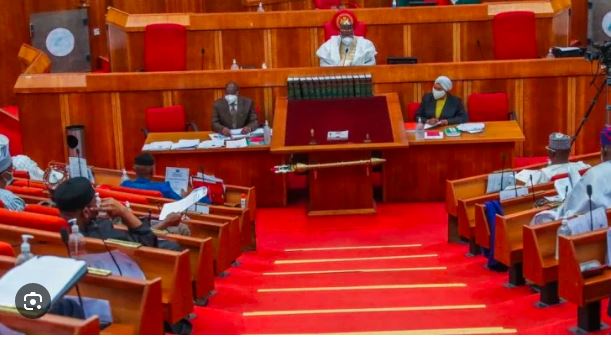FG’s Electricity Debt Rises by N800bn, Senate Demands Urgent Action…The Nigerian Senate has sounded the alarm over the Federal Government’s growing debt in the electricity sector, revealing that outstanding liabilities have now surpassed N800 billion.
This alarming development has raised serious concerns about the viability of the power industry and the sustainability of electricity supply across the country.
The debt, which has accumulated over several years, is largely owed to electricity generation companies (GenCos) and gas suppliers, who have continued to supply power to the national grid without receiving full payments. These unpaid bills have left many operators in the sector cash-strapped and on the brink of shutting down operations, a move that could plunge Nigeria into deeper electricity shortages.
Raising the issue on the Senate floor, Senator Aminu Iya-Abbas of Adamawa State led a motion urging the Federal Government to treat the situation with urgency. He stressed that the consistent failure to pay electricity debts undermines the stability of the power sector and sends negative signals to current and potential investors. The Senator emphasized that allowing the debt to grow unchecked poses a real threat to national energy security and economic development.
The Senate, responding to the motion, expressed deep concern over the consequences of neglecting the power sector’s financial needs. Lawmakers warned that if power generation companies are not paid, they may be forced to shut down power plants, leading to widespread blackouts that would severely affect businesses, homes, and essential services. In a country already grappling with inadequate power supply, any further disruption would have far-reaching consequences.
READ MORE: CBN Halts Over N4tn in Loans to FG Amid Mounting Debt Concerns
In a statement following the Senate’s deliberation, the Minister of Power, Adebayo Adelabu, acknowledged the severity of the crisis. He confirmed that the government recognizes the pressing need to settle its debts and has drawn up a plan to clear at least N2 trillion in arrears by the end of the year. This payment, he said, would be made through a mix of direct cash payments and promissory notes to ease the financial strain on power producers and maintain grid stability.
Despite this commitment, the Senate remains cautious. It has directed its Committee on Power to oversee the execution of the government’s repayment plan, ensuring transparency and accountability in the process. The committee has also been mandated to probe the systemic issues that led to the accumulation of such a large debt in the first place and recommend long-term solutions to prevent similar occurrences in the future.
The crisis underscores the broader financial challenges facing Nigeria’s power sector. Many experts argue that the current structure of the electricity market is unsustainable. They point to issues such as inadequate tariff adjustments, inefficiencies in billing and revenue collection, and poor governance in the management of electricity payments. These problems, they argue, must be addressed if the government is to make any meaningful progress in its effort to provide reliable electricity to Nigerians.
Stakeholders in the sector are now calling for bold reforms, including improved regulation, better customer service frameworks, and stronger enforcement of payment obligations from all players in the electricity value chain. They also advocate for enhanced transparency in the disbursement and use of government funds earmarked for the sector.
As the Senate intensifies its oversight and the Federal Government rolls out its debt repayment plan, there is cautious optimism that the situation can be stabilized. However, unless Nigeria implements deep-rooted reforms to improve efficiency and financial discipline in the power industry, the sector may continue to struggle under the weight of unpaid obligations and chronic underfunding.
The ballooning N800 billion electricity debt serves as a stark reminder of the urgent need for fiscal responsibility and strategic investment in the power sector. Without timely intervention and comprehensive reforms, the nation risks sliding further into energy insecurity, with dire consequences for economic growth and national development.




